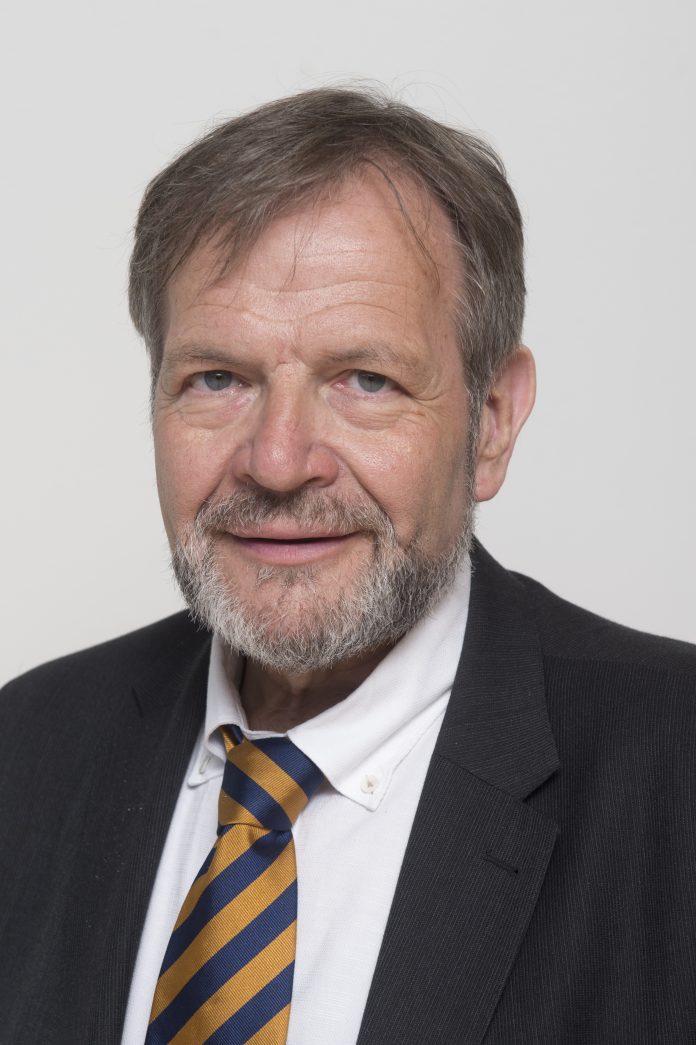Javier Doz Orrit, EESC Member for the Spanish Comisiones Obreras Trade Union and Rapporteur for the EESC opinion on the 2021-2027 MFF, European Economic and Social Committee, tells us everything we need to know about the EU Multiannual Financial Framework
On 2nd May this year, the European Commission presented its proposal for a European Union (EU) Multiannual Financial Framework (MFF) for 2021-2027. Since then, we are getting to grips with a series of sectoral legislative proposals that together, make up the complex legal architecture of forthcoming EU budgets.
For the seven-year period, the Commission plans overall expenditure of €1,134,583 million (in 2018 prices, throughout this article). This represents a 5% increase over the current 2014-2020 MFF, but since seven-year periods are concerned, in fact, entails a reduction compared to the size of the economy of the EU of 27 Member States (EU27), falling from 1.16% of Gross National Income (GNI) to 1.11%.
This is a further downward step in a process that began in the 1990s, yet another symptom of the political crisis afflicting the EU – a crisis which no-one seems to have either the will or the ability to tackle. Not even the Commission, which on this occasion has given in without a fight. It could see that, as well as the ever-growing group of Eurosceptic governments, the Netherlands government was heading a group of 12 others who want a cut matching the United Kingdom’s entire net contribution to the EU (some €10 billion a year). Possibly prompted by the entirely reasonable aim of having the MFF adopted at the summit in Sibiu (Romania) on 9th May 2016, before the European elections (23 to 26 May 2019), the Commission decided that more than half (€70 billion) of the British contribution would be cut, with the other part being covered by new own EU resources.
This cave-in is, however, inexcusable. With the social consequences of the crisis still raw in many countries, plus the European political crisis even more acute and a debate on EMU and EU reform open, but with no prospect of a clear solution. Also, with a neighbourhood and a world riddled with geopolitical risks both old and new – including the electoral rise of national and extreme right-wing parties and the emergence of authoritarian leaders and governments whose actions run counter to the principles and values of the EU – only strong and ambitious budgets can provide European policymakers with the means to act – and hope – faced with citizens who are confused, angry and ripe for manipulation.
There is a positive side to the Commission’s proposal. The structure, flexibility and synergies it introduces are improvements on the current version. It must be acknowledged that nearly all the spending priorities are well-chosen: I+D+i, with €91 billion (+ 31%) for the Horizon programme; migration and borders with €30.8 billion (+ 210%) – with no common policy, however; Erasmus+, with €26.3 billion (+ 93%); and strategic investment, with €44.4 billion (+ 39%). There are two new programmes: the European Defence Fund, with €11.5 billion – although the ethical limits of research and production in this sector of industry have not yet been set – and the Support Reform Programme, with €22.2 billion.
The problem is that the increase in these areas comes at the cost of deep cuts in cohesion policy (- €37 billion, – 10%) and the Common Agricultural Policy (CAP) (- €60 billion, – 15%). It is unacceptable that, at a time when the consequences of the social cohesion crisis in many Member States must be faced, the Cohesion Fund should be reduced by 46%, the Regional Development Fund by 12% and the European Social Fund by 6%. Neither is the impossibility of properly funding the new CAP reform, closely tied in with climate protection, acceptable.
The critical analysis of the post-2020 MFF set out in the opinion of the European Economic and Social Committee (EESC) is accompanied by a number of proposals from the representatives of European civil society. The main proposals: resources should be increased to 1.3% of GNI (as also urged by the European Parliament) and financed by EU own resources, implementing the tax proposals made by the High-Level Group chaired by Mario Monti (VAT, the new Common Consolidated Corporate Tax Base, digital economy multinationals, carbon emissions, etc.); cohesion policy and the CAP must have resources at least the same as those under the current MFF.
The conditions for co-financing investment via existing funds for the countries with the greatest problems should be more flexible; a specific programme must be adopted so that the Member States can finance the European Pillar of Social Rights (2017 Gothenburg Declaration); more investment is needed to close the major gap opened up by the crisis; and priority must be given to all steps that uphold the Sustainable Development Goals (SDGs) of the UN’s Agenda 2030.
Showing determination to adopt ambitious budgets that serve the interests of the vast majority is more important than adopting poor budgets in advance of European elections. Exactly the same can be said about EU reform. The challenges and the risks are too great.
Javier Doz Orrit
EESC Member
for the Spanish Comisiones Obreras Trade Union
and Rapporteur for the EESC opinion on the 2021-2027 MFF
European Economic and Social Committee











